
Demand growth sluggish; costs, overcapacity hit industry: OECD
Global steel demand growth will continue to be very sluggish in 2024-25 amid deteriorating market conditions, says the OECD Steel Committee. Steel firms need to absorb higher costs while facing weak demand and surging imports due to global excess capacity.
Demand for steel fell by 3.3% in 2022 and recovered by only half this amount in 2023 as higher interest rates worldwide continue to depress construction activity and investment. High and persistent inflation is meanwhile reducing spending on steel-intensive durable goods and has led to higher raw material costs for steel firms since June 2023, the committee noted following its 95th session in late March.
World crude steelmaking capacity in 2023 is now estimated at 2.439 billion tonnes, exceeding production by 552 million tonnes. Around 23mt of potential new capacity growth in ASEAN during 2024-26 is through cross-border investments or joint venture investments.
China has made significant progress in limiting domestic crude steelmaking capacity growth. “Still, in addition to growing Chinese investment in Southeast Asia, there is growing concern that substantial financial incentives in China, such as tax benefits, grants, and research funding, are encouraging the capacity of higher value-added steel products. This implies that excess steel production capacity is ‘moving up the value chain’, seen in the recent shift in the composition of exports of Chinese steel and steel-using downstream products over the last years,” committee chair Ulf Zumkley says in a note seen by Kallanish.
A new committee study shows that the use of subsidies per unit of steel producing capacity in the form of cash grants has increased fivefold in non-OECD economies that are not members of the Steel Committee from 2005 to 2021. Subsidies in the form of below-market financing – soft loans – have doubled. Each $1 million of subsidies through grants is associated with capacity increases of about 7-11 million tonnes in the non-OECD area.
Steel trade dynamics underwent significant changes in 2023, marked by a 40% increase in China’s steel exports compared to the previous year, while Southeast Asian exports also grew amid capacity increasing faster than demand. This could lead to more widespread usage of trade defence instruments.
Adam Smith Poland

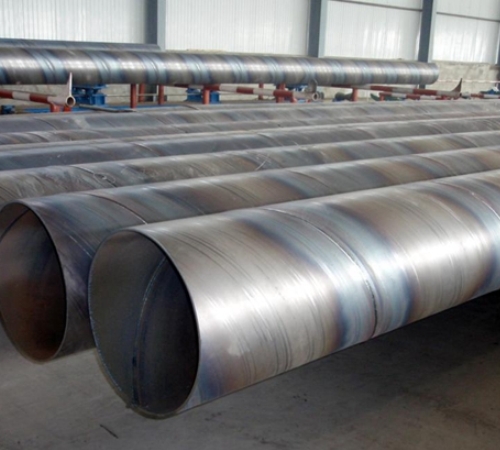
Italian welded tube prices to increase
Some Italian welded tube re-rollers will increase prices starting this week. Sources from hot rolled coil mills, re-rollers and distributors are registering a price floor for domestic and imported HRC, with expectations of some mild increases for European coil and derivatives.
The unsustainable price of tubular products is causing margin pressure for all southern European re-rollers. An Italian tube maker sees production costs increasing in 2024, worsened by the several production stoppages implemented this year to balance demand and supply.
Some tube demand improvement is being reported in Italy. Last week’s activity was slightly higher than usual and positive signs are coming from those end-users who have suffered a strong order contraction in recent months, Kallanish hears.
A re-roller confirms he is starting to decrease discounts by a couple of points this week. Although the fragile market conditions persist, a gradual increase made of “small steps” is achievable in the coming weeks. Until last week, discounts in Italy stood at 38-39 points.
European HRC levels are expected to recover by €10-20/tonne ($10.8-21.6) in contracts in the coming weeks. Steelmakers say they cannot sustain the average level of €650/t base delivered and will try to push up values towards the level of €680/t.
Natalia Capra France


French rebar flattens in quiet market
French rebar prices are flat compared to the end of last month after values decreased in March by some €10/tonne ($10.8) on average. Sources in the market are reporting quiet activity and back-to-back sales, with no change from previous weeks, Kallanish hears.
The first ten days of March were “acceptable” in terms of domestic sales, distributors say. However, since mid-March, consumption has fallen again and sales are low. Construction firms continue to buy only small tonnages each week and report limited visibility. Continued uncertainty and quiet activity, particularly last week after Easter, are impacting turnover throughout the value chain.
French rebar values are hovering at €620/t delivered on average, sources suggest.
The domestic construction sector is officially going through a recession, as confirmed recently by national construction federation Fédération Française du Bâtiment (FFB). New construction fell by 23% year-on-year over the three months ending January 2024.
Activity in some sectors of the industry fell more steeply, such as construction of individual houses which declined by as much as 41% between January 2023 and January 2024. The crisis involves all building segments including non-residential (see Kallanish 20 March).
Natalia Capra France

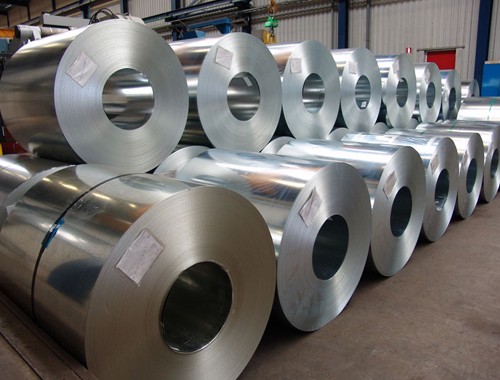
EU stainless coil prices rise
European contract prices for stainless cold rolled coil are increasing following the hikes implemented by steelmakers last month, sources tell Kallanish.
Over recent weeks, the steelmakers in operation have gathered orders that could not be placed with Acerinox or Outokumpu due to strikes impacting both plants for very different reasons. The long absence from the market of these two producers has balanced demand and supply.
Mills in Europe are now selling at €2,650/tonne ($2,871) delivered on average for CRC, with lead times lengthening into June and July. Italian contract prices are also increasing but lagging behind compared to other EU countries. Until last week, domestic stainless CRC stood at €2,530-2,550/t on average for July lead times, with asking prices at €2,600/t base delivered.
Contracts in Italy are however expected to increase on lower availability and better demand. Domestic hot rolled coil is being sold at between €2,300-2,370/t delivered due to the presence of cheaper import offers from Asia. Prices of both coils and sheets in Europe may continue to rise. Two European producers are currently not quoting for coil.
The stainless flat steel market is generally improving because coil offers are limited. Downstream sheet demand seems to have somewhat resurfaced, service centres in northern and southern Europe say, after 18-20 months of depressed consumption. According to two sources, the current improved activity should last until the summer.
Sheet prices are at €2,700-2,750/t ex-works in Europe, depending on country. The lowest point of the range has been registered in Italy, which remains the sick man of Europe.
A fire broke out at Acerinox’s plant in Los Barrios, Cádiz on 2 April, which the company says was started intentionally. The fire occurred at the company’s paper warehouse and firefighters put it out immediately, preventing serious damage to the plant. The workers’ strike there continues.
Natalia Capra France

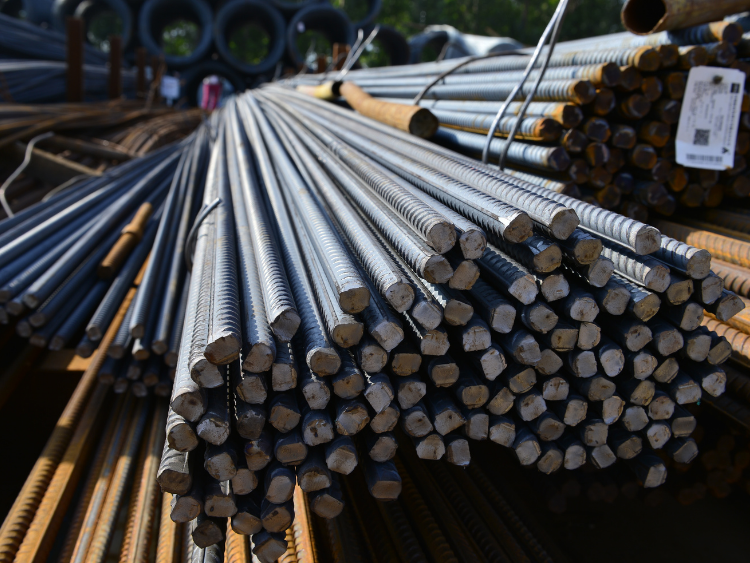
Polish rebar, wire rod prices continue to decrease amid slow trading
Rebar
Polish mills offered April-production rebar at 2,700 zloty ($682) per tonne CPT, which nets back to about 2,670 zloty per tonne ex-works, sources told Fastmarkets.
For volumes bigger than 500 tonnes, mills were willing to grant a discount of 20-30 zloty per tonne.
These levels were lower compared with the previous week when rebar was offered at 2,700-2,740 zloty per tonne CPT, which is equivalent to 2,680-2,710 zloty per tonne ex-works.
Market participants estimated tradeable market levels at 2,700 zloty per tonne CPT for small tonnages, which nets back to about 2,670 zloty per tonne CPT.
The workable market level for volumes larger than 500 tonnes was 2,670-2,680 zloty per tonne CPT, which equates to 2,650-2,660 zloty per tonne ex-works, according to market participants.
But lower prices failed to spur trading and no major deals were heard in the market, .
Fastmarkets’ weekly price assessment for steel reinforcing bar (rebar), domestic, exw Poland was 2,650-2,670 zloty per tonne on Friday, down by 30-40 zloty per tonne from 2,680-2,710 zloty per tonne on March 28.
“Consumption is not that bad, but customers are still receiving the material they have already ordered. Once [the ordered volumes] are delivered, they will start buying again,” a producer source told Fastmarkets.
According to a consumer source, the Polish rebar market was quiet in the first week after Easter, but more deals are expected in the coming week.
Buyers shared mixed views about the rebar market’s development in the near future.
“Demand for unprocessed rebar is bad; [it] seems that prices will have to go down further,” a distributor source told Fastmarkets.
“On the other hand, the cut-and-bend sector is doing well, so maybe Polish mills will not be eager to continue with decreases,” the distributor added.
According to a second distributor source, demand from the cut-and-bend sector is not the same in all regions of Poland, and from their perspective, it was poor this week and the previous week.
They added that cut-and-bend companies had bought some volumes in recent weeks due to dropping prices and the fact that they had foreseen higher prices for the material in their budgets. The second distributor source was also pessimistic about demand from the construction sector in the next two months.
The direction of Polish rebar prices will be clearer next week when most new scrap contracts for the month will be signed, the second distributor source added.
Strong competition from imports also continued to put pressure on the domestic rebar market in Poland. Offers of the material from Germany were heard at €615-620 ($667-673) per tonne delivered. Offers of rebar from Hungary and Italy were heard at €615 per tonne delivered.
Wire rod
Polish mills continued offering drawing-quality wire rod in the range of 2,850-3,000 zloty per tonne CPT in the week to Friday, sources told Fastmarkets.
These offers were unchanged from price levels last week when Polish wire rod producers cut their official offers to stimulate buying.
But demand remained low with no restocking, a third distributor source told Fastmarkets.
Bids were heard at 2,800 zloty per tonne CPT.
Sources indicated tradeable market levels in the range of 2,800-2,900 zloty per tonne CPT but no major deals were heard in the market.
Fastmarkets’ price assessment for steel wire rod (drawing quality), domestic, delivered Poland was 2,800-2,900 zloty per tonne on Friday, widening downward by 50 zloty per tonne from 2,850-2,900 zloty per tonne on March 28.
According to market participants, some restocking could be expected during the Tube and Wire trade fair in Düsseldorf, Germany, on April 15-19.
Import offers of drawing-quality wire rod from Italy were heard at €650-670 per tonne CPT.
Offers of mesh-grade material from Italy, Moldova and Ukraine were heard at €630 per tonne CPT.
Published by: Darina Kahramanova


HRC buyers in Europe hold back from trading; rock bottom said to be near
HRC buyers across Europe maintained a hand-to-mouth approach to bookings, shunning large-tonnage purchases, Fastmarkets heard.
“Mills have short order books and quick lead times, therefore buyers can 100% live hand-to-mouth with such levels of end-user demand,” one buyer source said.
Demand from key steel-using sectors has dropped by around 15-20% year on year and this has affected purchases, several sources said.
Buyer ideas of achievable HRC prices in Northern Europe were mainly reported at €650-660 ($705-716) per tonne ex-works.
Northern European suppliers kept offers at €660-680 per tonne ex-works, with lower prices available for big tonnages, according to sources. Lead times were heard to be around six to eight weeks.
“Of course, producers can give a discount if you put a decent tonnage on the table. But these days, trading is almost zero,” a distributor in Germany told Fastmarkets.
“Mills are hungry for orders, but at the same time, [they are] not prepared to give in to extremely low prices due to production costs,” a trader in the Benelux area said.
Fastmarkets calculated its daily steel HRC index domestic, exw Northern Europe at €657.08 ($712.91) per tonne on Friday, down by €3.13 per tonne from €660.21 per tonne on Thursday.
The index was down by €6.67 per tonne week on week and by €57.17 per tonne month on month.
Despite talk of potential output cuts, producers have refrained from making official announcements so far, Fastmarkets understands.
“Output cuts were needed a month or two ago, so we could see the effects in the second quarter,” a steel service center source said.
In Southern Europe, Fastmarkets’ daily steel HRC index domestic, exw Italy was calculated at €635.83 per tonne on Friday, down by €0.84 per tonne from €636.67 per tonne on Thursday.
The index was down by €9.17 per tonne week on week and by €57.14 per tonne month on month.
HRC offers in Italy were mainly heard at €650-660 per tonne delivered, which is equivalent to €640-650 per tonne ex-works.
May lead times were reportedly still available from a local supplier, market sources said.
“All prices are only theoretical numbers, since there is no trading at all,” a buyer in Italy told Fastmarkets.
In the past week, sources reported slightly better trading downstream, with end-users said to be seeking tonnages, but prices remained weak due to oversupply.
In the secondary market, 4mm HR sheet was heard traded at no higher than €730-750 per tonne CPT, with some steel service centers reported to be offering as low as €720 per tonne CPT.
“Margins are squeezed at distributors; there is tough competition [in downstream markets],” a distributor in Italy said.
June-shipment HRC offers from Vietnam and Japan were generally around €570-580 per tonne CFR, but buying interest has remained low, Fastmarkets heard.
“Import prices from Asia would be already for HRC [cleared by EU customs in October] – price should be lower for such long lead times,” a trader in Italy said.
From Turkey, offers of June-shipment coil were heard at €600-605 per tonne CFR, including the anti-dumping duty.
Published by: Julia Bolotova


Tubos Reunidos 2023 performance improves, outlook positive
Spanish seamless tube supplier Tubos Reunidos (TR) saw most of its main indicators grow in 2023 compared to the previous year, Kallanish notes.
“The year was characterised by an outstanding performance in the first half, based on the high prices seen in the seamless pipe market, and by weaker demand in H2 due to the high level of stocks held by distributors and end customers, which resulted in a slowdown in incoming orders,” TR comments.
The positive sales performance was supported by a reduction in costs and efficiency measures as part of its Strategic Plan, the company notes.
TR anticipates a normalisation of sales volumes and prices in 2024, with lower activity in H1 and a gradual recovery in demand throughout the year. The company however says it will be difficult for values to recover to levels seen in 2023.
“The year [2024] started with a high degree of uncertainty, a macroeconomic environment with relatively high inflation and interest rates that remain high for longer than expected. Moreover, the significant inflow of pipes imported at low prices is a factor that must be taken into account, insofar as it adds additional pressure to a sluggish market situation in Europe,” TR observes.
In the US, the company sees as positive the extension until December 2025 of quota allowances for EU steel and aluminium. “Demand for pipes is expected to recover as current stock surpluses held by distributors and end customers are reduced,” TR adds.
The tube supplier confirms a significant part of its activity in 2024 will focus on low-emission production. This will strengthen a segment that will be one of the key areas of its growth and value generation.
The group’s revenue in 2023 grew 3.7% versus 2022 to €532.9 million ($577.7m). The North American market represented 46% or €245m of revenue compared to 54% in 2022. The remaining markets where TR operates also performed positively, especially in Europe due to high price levels.
The company posted an Ebitda of €106.8m last year, an improvement by €42.3m compared to 2022.
Todor Kirkov Bulgaria

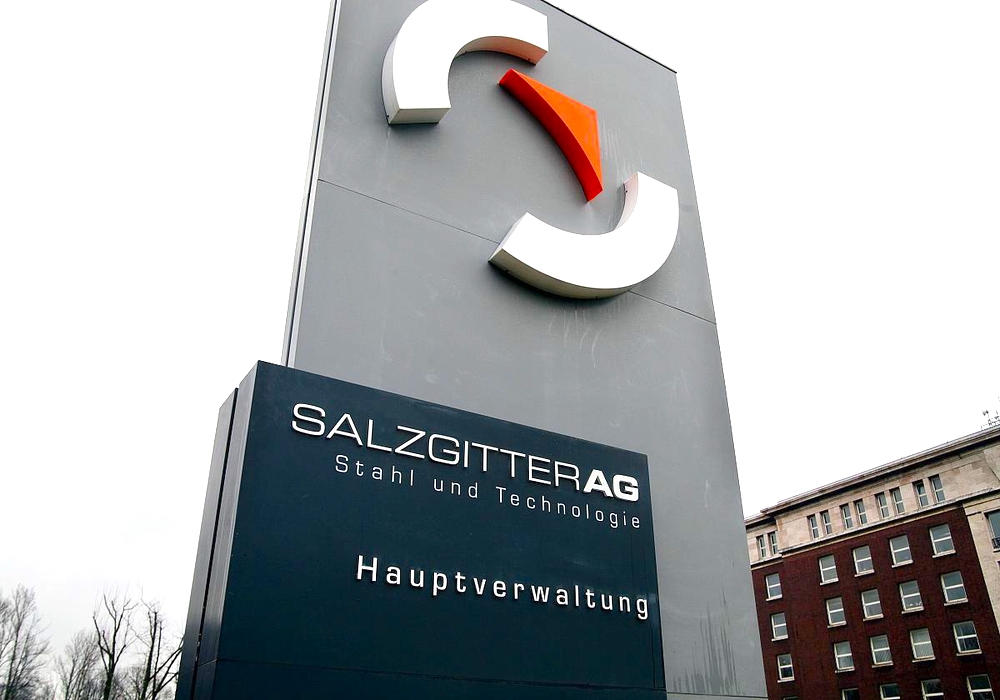
Salzgitter commissions Lindemann and Lybover for new shredder
Salzgitter has commissioned the construction of a new scrap shredder, with Düsseldorf-based machine and plant manufacturer Lindemann and Belgian company Lybover chosen as technology suppliers.
The steelmaker announced the shredder plan during its annual conference call last month (see Kallanish 14 March).
The shredder will be located at the integrated steelworks site in Salzgitter, directly adjacent to the SALCOS plant that is currently under construction. It will cost around €30 million ($33m), will be 189 metres long and 66m wide, and enable the processing of high-quality scrap grades, the company states.
According to Salzgitter, Lindemann and Lybover command many years of expertise in the fields of machine technology and shredding, in addition to processing plants and exhaust air technology.
An existing shredder operating at the site is not fit for the future requirements of the steelmaking process, chief executive Gunnar Groebler said during last month’s conference. The new shredder will have a larger processing capacity and be technically more sophisticated in the separation of impurities, producing purer scrap grades for future steel production, he said.
Christian Koehl Germany

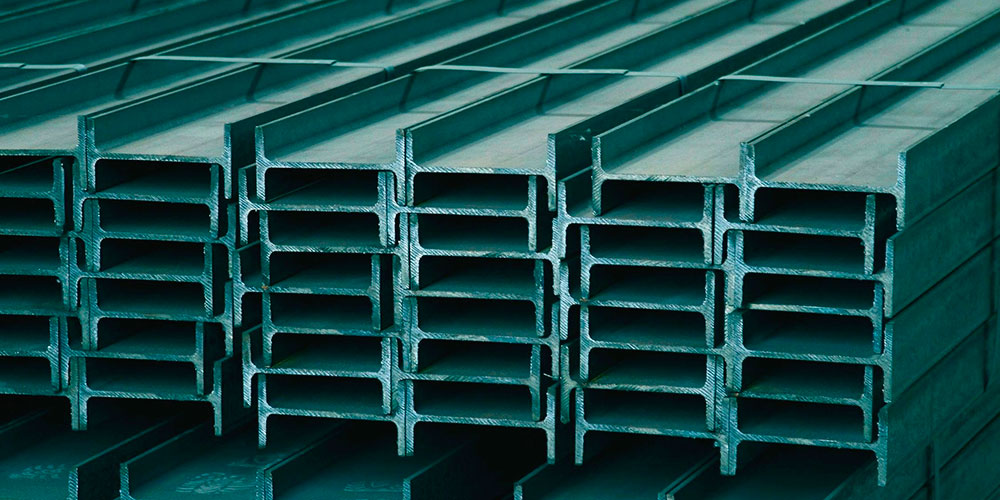
EU quota definitions hinder Swiss merchant bar exports
Swiss mill Stahl Gerlafingen has been affected by EU restrictions against flat-rolled and sheet products, although it does not produce them. However, as a side effect, the subsidiary of Beltrame has lost markets in neighbouring EU countries and, as a consequence, announced last week that it will discontinue production of merchant bar.
In the definition of the products it subjected to safeguard measures in 2019, the European Commission’s Category 1 – tariff quota order number 09.8601 – comprises rolled sheet and strip. In this product group, the EU also includes wide flat steel, sometimes referred to as universal flats. This is essentially merchant bar, which has different production routes and customer sectors than coil/sheet/strip.
It has since been a political issue between Switzerland and the EU, involving the Swiss economy ministry. Unlike some other non-EU countries, there is no bilateral agreement with Switzerland giving it a separate contingency for such products. Instead, wide flat steel competes with any coil imports from overseas countries, against which it does not stand a chance, the ministry says in a dossier sent to Kallanish. “Since summer 2023, the quotas that are allowed per quarter are basically filled in a matter of hours or days by overseas importers,” the ministry writes.
According to a Stahl Gerlafingen spokeswoman, the mill cannot compete with the tonnages sitting in vessels outside EU ports, waiting for clearance on the first day of each quarter. The problem has been aggravated over time, along with increasing shiploads from overseas. Last summer, it came to a head. Since then, Stahl Gerlafingen, with its limited storage capacities, cannot deliver the same volumes in a short time to EU Customs as the vessels at Antwerp or Rotterdam.
Any volume outside the quota limit would require payment of a 25% duty, “which neither the Swiss exporters nor the EU importers can cope with in a profitable way”, the economy ministry writes. “Exports of steel of Product Category 1 have since been de-facto impossible.”
Christian Koehl Germany

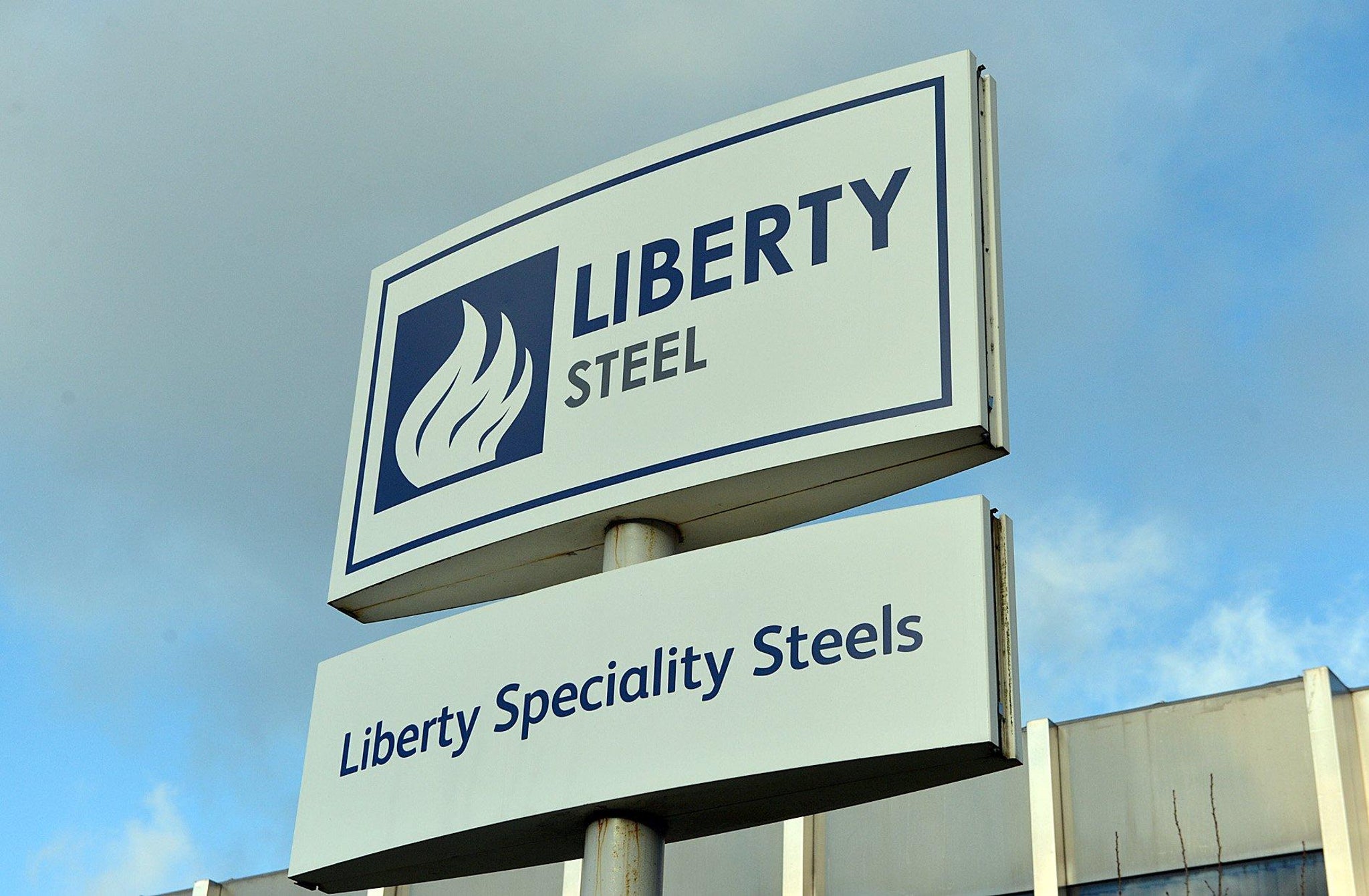
Liberty appoints European ceo, locates headquarters in Vienna
Liberty Steel has appointed Thomas Gangl as chief executive of its European business, effective 1 July, and chosen Vienna as the location for its European headquarters.
Gangl is currently ceo and chairman of Vienna-based chemicals company Borealis, previously serving in various management positions at Austrian oil company OMV. He will be focussed on stabilising Liberty’s European units, which employ 17,000 workers, optimising production and delivering the green steel transformation by 2030.
Gangl’s appointment follows progress with Liberty’s European debt restructuring and is part of a broader plan to establish a new European holding company registered in Vienna. The Austrian capital offers a central European location close to Liberty’s major plants with excellent financial and professional service industries, Liberty says.
Liberty interim ceo for European Upstream Theuns Victor will manage a handover to Gangl from July, and will then return to his position leading Industrial Projects & Development to deliver the group’s carbon neutral ambitions. Green Steel EMEA ceo Toker Ozcan will now focus on leading Liberty’s UK operations following the recent agreement with Greensill creditors.
“Thomas’s experience in managing complex business environments and major capital projects will be vital as we stabilise our businesses in Europe, seek to attract fresh capital and transition away from coal-based steel production. The establishment of a new European group headquartered in Vienna will mark a new chapter for our businesses with its core focus on leading the development of green steel in our neighbouring Central and Eastern European locations,” Liberty executive chairman Sanjeev Gupta says in a note sent to Kallanish.
Adam Smith Poland


